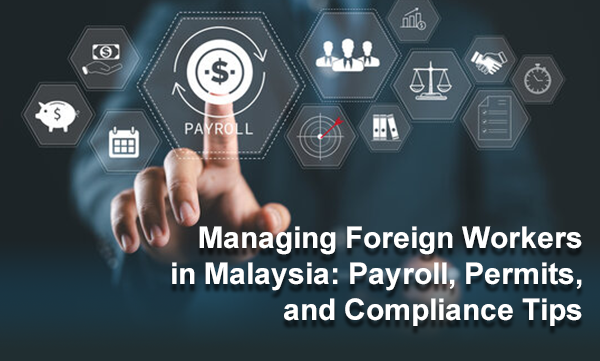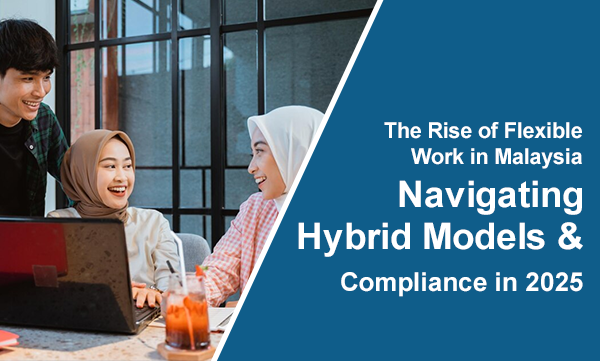
Managing Foreign Workers in Malaysia: Payroll, Permits, and Compliance Tips
Managing Foreign Workers in Malaysia: Payroll, Permits, and Compliance Tips
Hiring foreign workers in Malaysia comes with its own set of challenges — from navigating work permits to ensuring payroll compliance with local laws. Whether you're in manufacturing, construction, plantations, or services, understanding the legal and administrative responsibilities is crucial to avoid hefty penalties and operational disruptions.
Here’s a practical guide to help Malaysian employers manage foreign worker payroll and compliance efficiently.
1. Ensure Valid Work Permits and Quota Approvals
Before hiring, employers must secure approval from the Ministry of Home Affairs (MOHA) and ensure they stay within their sector’s foreign worker quota. Each foreign employee must have a valid Pas Lawatan Kerja Sementara (PLKS) — the temporary employment pass.
Permits typically require annual renewal, and failing to manage this can lead to legal action, including deportation of workers and blacklisting of the company.
Stay organized with a digital tracking system to monitor permit expiry dates and renewal deadlines.
2. Understand Levy Payments and Employer Responsibilities
In Malaysia, employers are responsible for paying the government-imposed foreign worker levy. The rates vary depending on industry and worker nationality.
Recent updates from MOHA have introduced a multi-tiered levy system aimed at reducing dependency on low-skilled foreign labour. It's essential for businesses to stay informed about these changes to avoid unexpected costs.
Levy payments are non-deductible from employee salaries — employers must bear the full cost.
3. Payroll Compliance: SOCSO and EIS for Foreign Workers
As of January 2019, all foreign workers (excluding domestic helpers) must be registered under SOCSO for the Employment Injury Scheme. This replaced the older Foreign Worker Compensation Scheme (FWCS).
Key Points:
Employers contribute 1.25% of the insured monthly wages to SOCSO.
Foreign workers are not required to contribute to EPF , unless they opt in voluntarily.
EIS contributions do not apply to foreign workers.
Late or missed SOCSO contributions can result in fines up to RM10,000 or imprisonment.
Check SOCSO guidelines for foreign workers ➜
4. Salary Payment: Follow Legal Channels
Malaysian law requires that foreign worker salaries be paid through legal banking channels — cash payments are discouraged and risky. Many employers now use digital payroll systems or integrate with e-wallet solutions like Merchantrade for faster, traceable payments, especially for unbanked workers.
This ensures transparency, protects both employer and employee, and aligns with Bank Negara Malaysia’s push towards a cashless ecosystem.
5. Maintain Accurate Payroll Records
Employers must keep detailed records of salary payments, deductions (if any), levy receipts, and permit renewals for inspection by authorities like Jabatan Imigresen Malaysia or JTKSM.
Records should be stored securely for at least 7 years to comply with audit requirements.
Automating payroll processes for foreign workers can help centralize this data and reduce administrative errors.
Conclusion: Compliance Is Key to Managing Foreign Workers
Handling foreign worker payroll and compliance in Malaysia isn’t just about processing salaries — it’s about understanding complex regulations, staying ahead of renewals, and ensuring proper contributions are made.
With frequent policy updates and strict enforcement, relying on manual processes can expose businesses to unnecessary risks. Investing in digital payroll solutions designed for Malaysian regulations is the smartest way forward.
Simplify Foreign Worker Payroll with HR2eazy
HR2eazy helps Malaysian businesses manage foreign worker payroll, SOCSO contributions, levy tracking, and secure salary disbursement — all in one platform.
Book a free consultation and let us handle your compliance, so you can focus on growing your business.
Sources:
Ministry of Home Affairs Malaysia – Foreign Worker Management
SOCSO Employment Injury Scheme
MOHA Multi-Tier Levy System Announcement


